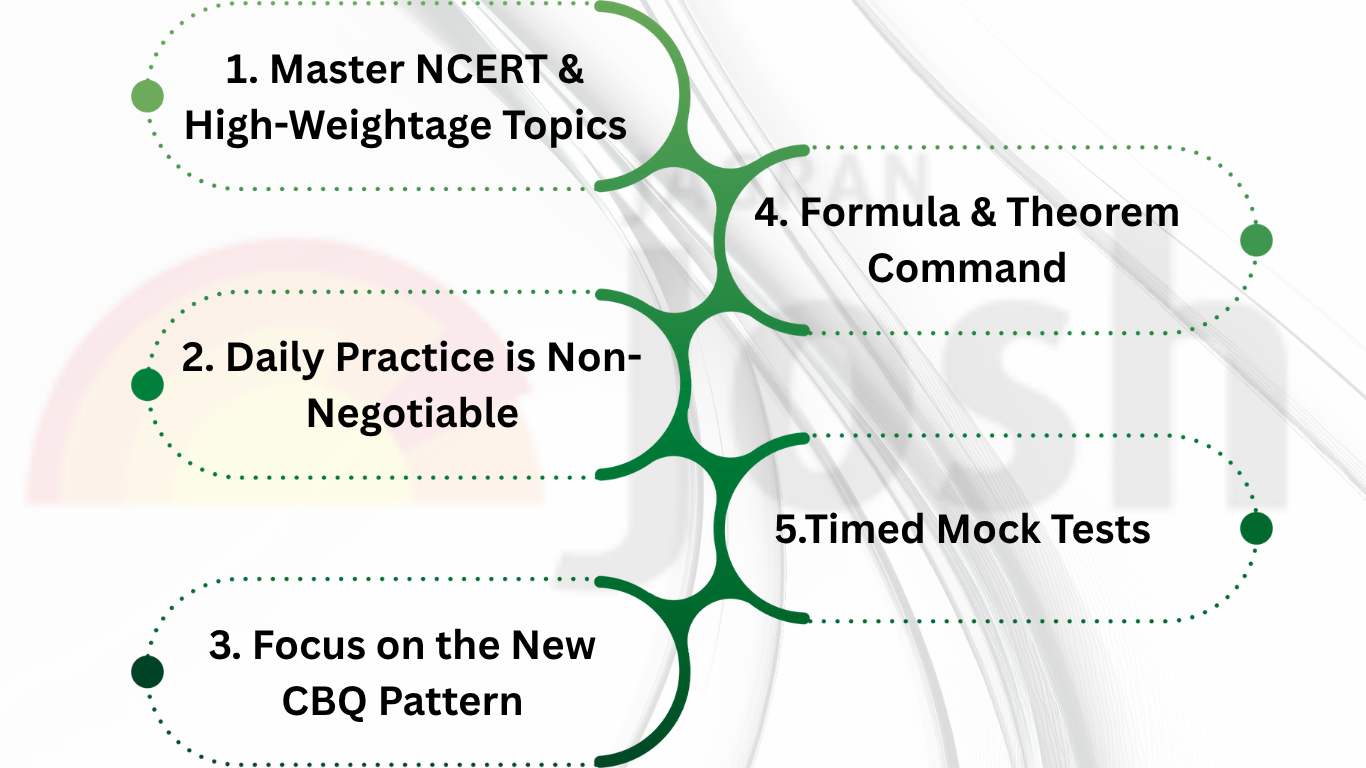CBSE Class 10 Exam Pattern and Marking Scheme 2026: The Central Board of Secondary Education (CBSE) will conduct the Class 10 Maths exam in 2026 based on a specific pattern. Understanding this pattern is crucial for students preparing for their board examinations. The exam will assess various aspects of Maths language and literature, including reading comprehension, writing skills, grammar, and literary analysis.
Students should familiarize themselves with the distribution of marks across different sections and topics to strategize their study plan effectively. The marking scheme provides a detailed breakdown of how marks are allotted for each question, helping students understand the weightage of different answer components. This comprehensive knowledge will enable them to focus on areas that carry more marks and improve their overall performance in the exam.
Check: CBSE Class 10 Maths Syllabus 2025-26 (PDF)
Check: CBSE Class 10 Maths Board Exam 2026 Best 5-Month Study Plan
CBSE Class 10 Exam Pattern 2025-26: Key Highlights
CBSE class 10 exam pattern 2025-26 highlights can be checked from the table below:
Particulars | Details |
| Conducting Body | Central Board of Secondary Education (CBSE) |
| Question Paper Pattern |
|
| Duration | 3 Hours |
| Medium | Maths / Hindi |
| Mode | Offline |
| Number of subjects | 5 or 6 (as elected by the student) |
| Maximum Marks | 100 (theory + practical)
|
| Passing marks for each subject | 33% |
| Passing marks for the overall exam | Aggregate 33% |
Check: CBSE Class 10 Previous Year Question Papers
CBSE Class 10 Mathematics Exam Pattern 2025-26
The CBSE Class 10 Mathematics paper for the 2025–26 board exams will maintain the same structure and exam pattern as previous years, applying uniformly to both Basic and Standard Mathematics papers. There are no changes anticipated.
Maths Question Paper Structure
Section | Question Type | Question Numbers | Marks per Question |
| A | MCQs + Assertion Reason | Q1–Q18, Q19–20 | 1 mark each |
| B | Very Short Answer | Q21–25 | 2 marks each |
| C | Short Answer | Q26–31 | 3 marks each |
| D | Long Answer | Q32–35 | 5 marks each |
| E | Case Study-Based | Q36–38 | 4 marks each (sub-parts 1,1,2) |
Internal choice is available in 2 questions each from Sections B, C & D, and all questions in Section E.
Chapter-Wise Weightage (Maths)
Unit | Name | Marks |
| I | Number Systems | 6 |
| II | Algebra | 20 |
| III | Coordinate Geometry | 6 |
| IV | Geometry | 15 |
| V | Trigonometry | 12 |
| VI | Mensuration | 10 |
| VII | Statistics & Probability | 11 |
|
| Total | 80 |
Check CBSE Class 10 Maths Sample Paper 2025-2026
Preparation Tips for CBSE Class 10 Maths Exam 2026

-
Master NCERT & High-Weightage Topics: Solve every single example and exercise from the NCERT book first. Prioritize Algebra (20 Marks), Geometry (15 Marks), and Trigonometry (12 Marks) as these units guarantee maximum marks.
-
Daily Practice is Non-Negotiable: Dedicate at least one hour daily to consistent problem-solving. Maths is a skill; practice builds speed and conceptual accuracy.
-
Focus on the New CBQ Pattern: Practice official Competency-Based Questions (CBA) and Case Studies rigorously, as they now account for approximately 50% of the paper (testing application, not memory).
-
Formula & Theorem Command: Maintain and daily revise a concise notebook of all formulas, identities, and Geometry theorems. Understanding the derivation behind them is crucial for application questions.
-
Timed Mock Tests: Regularly attempt full-length (3-hour) sample papers under strict timed conditions. Show all logical steps in your solutions, as marks are awarded for the process, and use the final 15 minutes to proofread calculations.
This structured approach to the CBSE Class 10 Maths exam, encompassing number systems, algebra, coordinate geometry, geometry, trigonometry, mensuration, and statistics & probability, combined with internal assessments, ensures a comprehensive evaluation. By understanding the topic-wise weightage and adhering to these preparation tips, students can effectively strategize their studies and maximize their scores.
Also Check:
Comments
All Comments (0)
Join the conversation